John Dee, Scholar and Magician
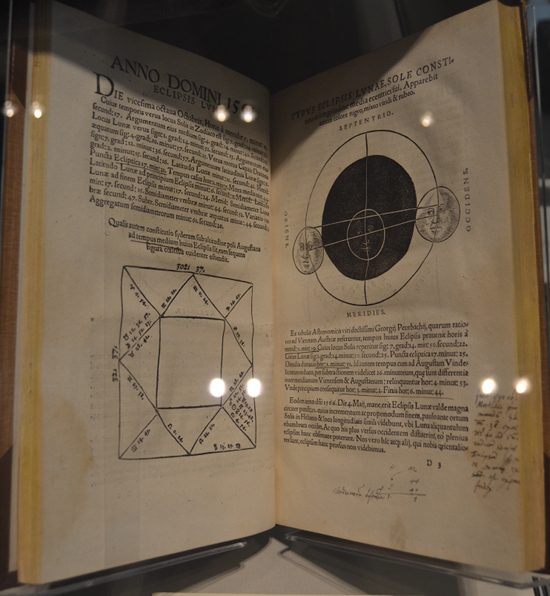
The name John Dee conjures up images of a Tudor-era mage plumbing the mysteries of the occult and speaking with angels through his system of Enochian magic. This is how most people know Dr. Dee, and it is all I knew about him until I visited an excellent exhibition at the Royal College of Physicians in London.
Scholar, Courtier, Magician: The Lost Library of John Dee sets the record straight on a misunderstood and often maligned Renaissance man. Far more than a mere occultist, Dee was a geographer, mathematician, astronomer, world traveler, and cryptographer. He was influential in two royal courts and was an early advocate for the colonization of the Americas.
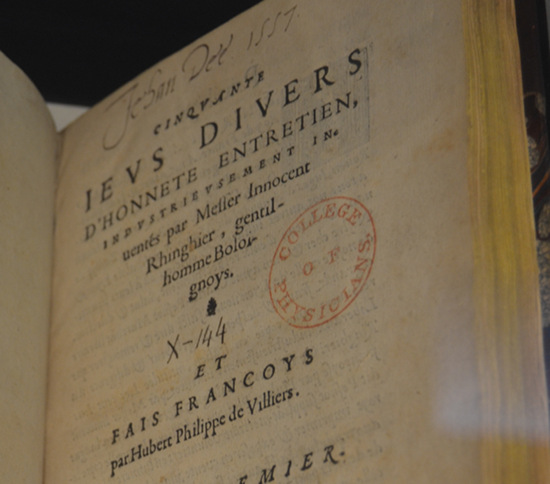
The Royal College of Physicians holds more than a hundred volumes of Dee’s library, the largest collection of his books in the world. Dee was an avid book collector, amassing more than 3,000 books and 1,000 manuscripts before his library was ransacked while he was traveling in Europe. He had entrusted its care to his brother-in-law Nicholas Fromond who, “unduely sold it presently upon my departure, or caused it to be carried away.” A word of warning to bibliophiles–only lend books to those you trust!
Little is known about Dee’s early life. He was born in London in 1527 and graduated from Cambridge in 1546, becoming a founding fellow of Trinity College, where he became an under-reader (a sort of assistant professor) of Greek. During his student days he created a prop for a university play, a flying dung beetle that carried an actor up to the ceiling. Many in the audience were so shocked by this stage trick that they thought it had been done by magic.
Much of the next twenty years was spent traveling in Europe, visiting several countries and making it as far as Russia. Dee avidly bought books and met with scholars in all fields of study. He did have time to mingle with the highest social circles back home, however, and in 1551 was made a courtier, with a pension, by King Edward VI.
With the death of his royal patron and the accession of Queen Mary in 1553, Dee fell into disfavor. He had been making much of his income by casting horoscopes, astronomy and astrology being intermingled in those days, and was brought on trial for witchcraft. Luckily he was found not guilty, but nevertheless spent some time under house arrest in the home of the bishop of London before he could convince the bishop of his religious orthodoxy.
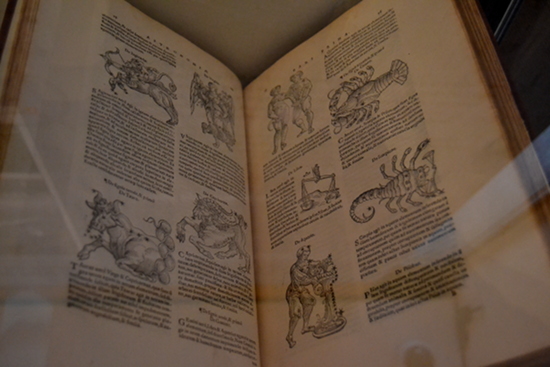
When Queen Elizabeth came onto the throne in 1558, Dee found himself once again in the good graces of the court. He astounded the queen by showing her his magical mirror and regaling her with his encyclopedic knowledge of the natural and occult worlds. When she fell ill in 1578, Dee traveled to Hamburg, Berlin, and Frankfurt on a “very painfull and dangerous winter journey” to consult with the leading physicians of the day. Despite the “Doctor” before his name, Dee was not a physician and the title refers to his status as a scholar. There is some speculation that this was also a spy mission, since it was arranged by the Queen’s chief spymaster, Robert Dudley. It may be significant that Dee was well versed in cryptography.
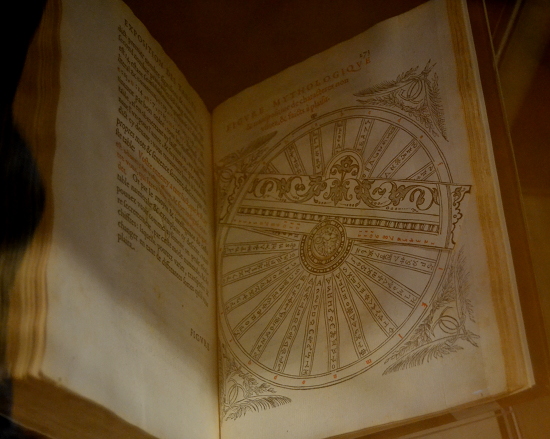
Mathematics was one of his greatest interests, and in the 1550s and 60s he wrote numerous treatises on mathematics as it pertained to navigation, perspective, and geometry. He urged his fellow Englishmen to learn mathematics as the most useful subject of study for a modernizing world. In 1577, Dee published the influential work General and rare memorials pertayning to the perfect arte of navigation. The explorer Martin Frobisher sought out his advice before trying to make the Northwest Passage.
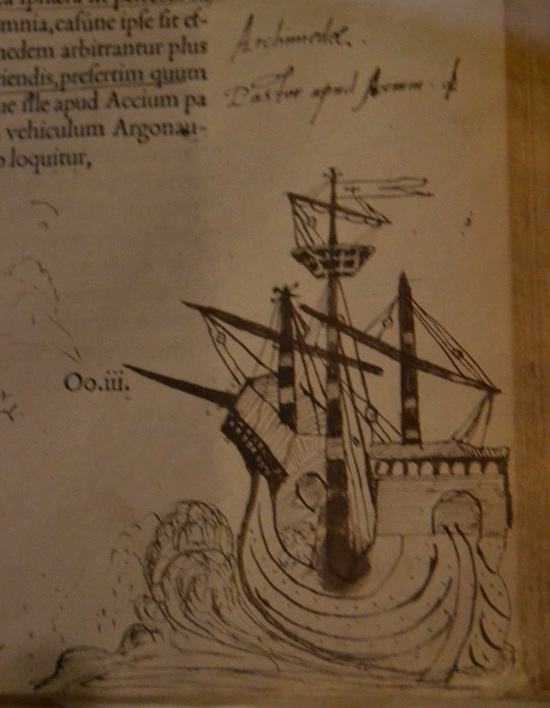
Later in life, Dee became increasingly interested in the occult. With the assistance of various mediums, he tried to communicate with angels, and claims he was finally successful in 1581. This got him a bad reputation, as did his works on the angelic language and what would become known as Enochian magic. He was called a “Conjuror of wicked and damned Spirites” and complained to the Archbishop of Canterbury about the many “rash, lewde, fond, and most untrue fables and reports of me, and my studies.” Other than its usual meaning, “fond” can also mean “foolishly credulous”. I never thought I’d learn new vocabulary from Doctor Dee!
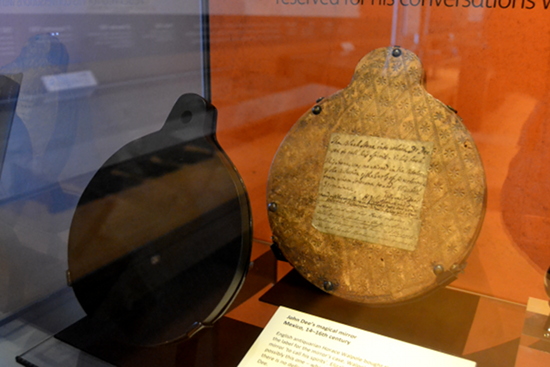
Dee died in 1609, leaving a rich legacy of learning. To Tudor scholars he was best known for his writings on Euclid and his mathematical works, but it was his study of magic and the occult that captured the public imagination. That’s a bit of a shame, because as this exhibition makes clear, John Dee was a leading and influential scholar of his day and should be remembered for his contributions to many branches of human knowledge.
Scholar, Courtier, Magician: The Lost Library of John Dee runs until July 29.
Photos copyright Sean McLachlan. More below!
Sean McLachlan is the author of the historical fantasy novel A Fine Likeness, set in Civil War Missouri, and several other titles, including his WWI action series Trench Raiders. His historical fantasy novella The Quintessence of Absence, was published by Black Gate. Find out more about him on his blog and Amazon author’s page.
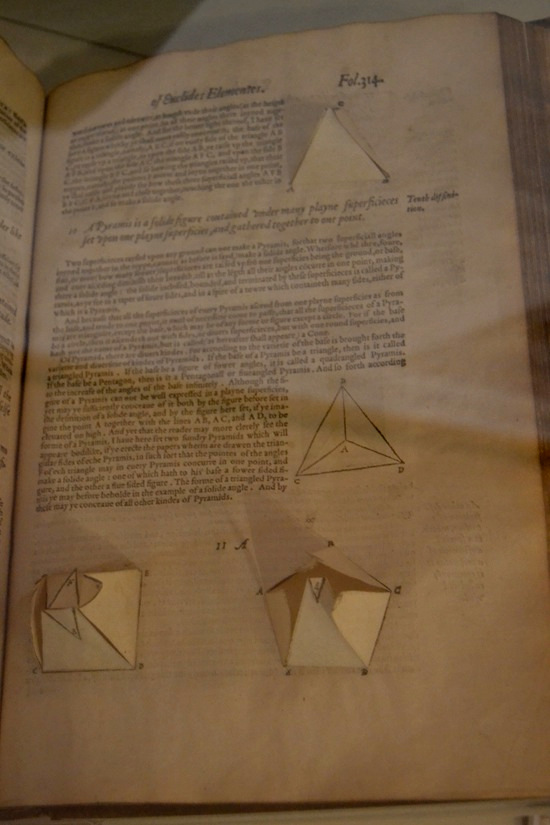
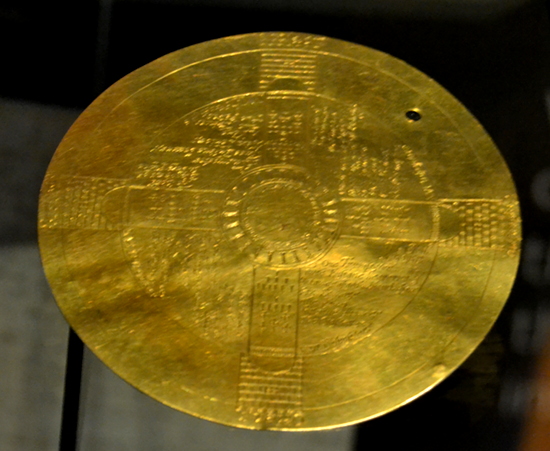
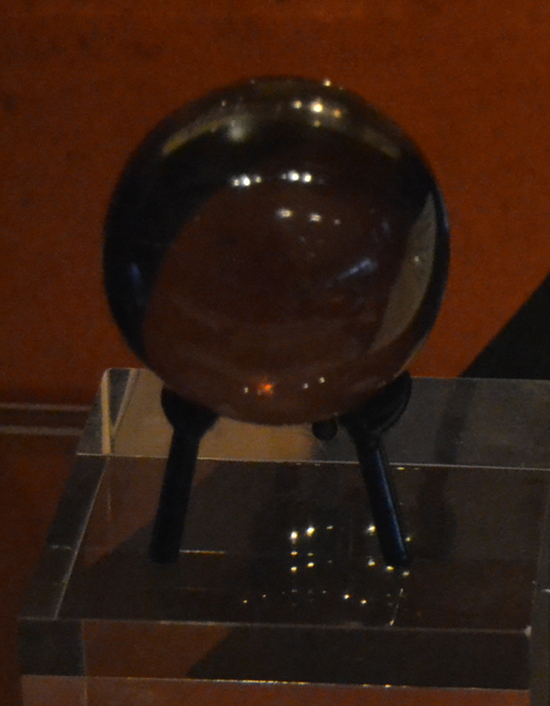
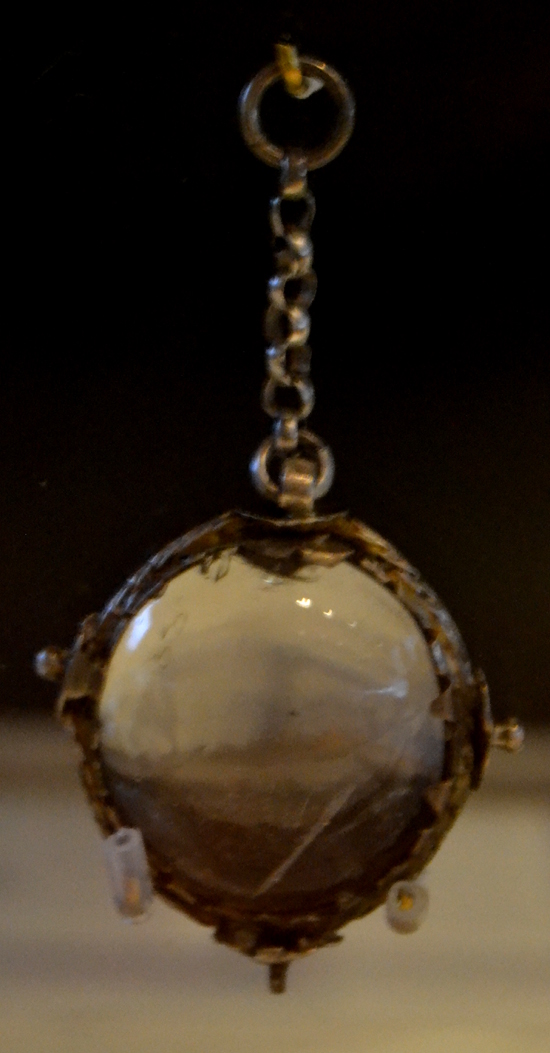
Is there a spell to get that Puppy-Monkey-Baby commercial out of my head. I’m willing to pay.
Great post, Sean. Don’t forget Dee also translated the Necronomicon into English. 😉
Oh, and his codename to Elizabeth I was “007”.
Interesting chap.
Seriously, I had no idea that there were books like this. I thought they were all fictional imaginings.
I just saw that puppy-monkey-baby commercial for the first time. It’s like something out of the Necronomicon, a Thing Man Was Not Meant to Know.
The only spell I know for removing unwelcome items from one’s head is countering it with another, less-unwelcome earworm. “Copacabana” is most effective, but only you can decide if it’s worth the side effect of, well, being stuck with “Copacabana.”
@Sarah—I am so sorry that you saw that. May Cthulu devour the creators of that aweful commerical.